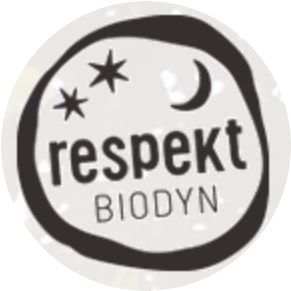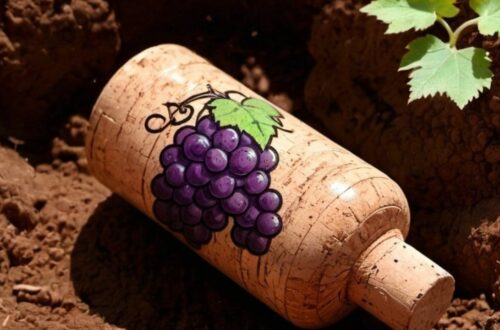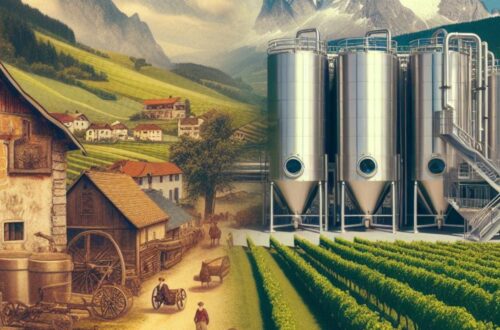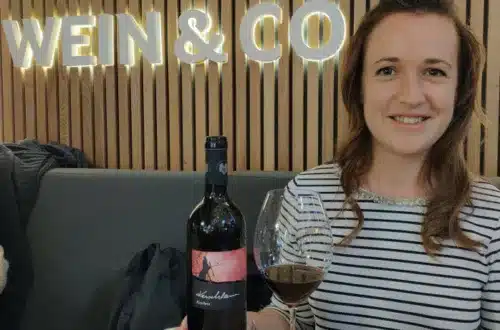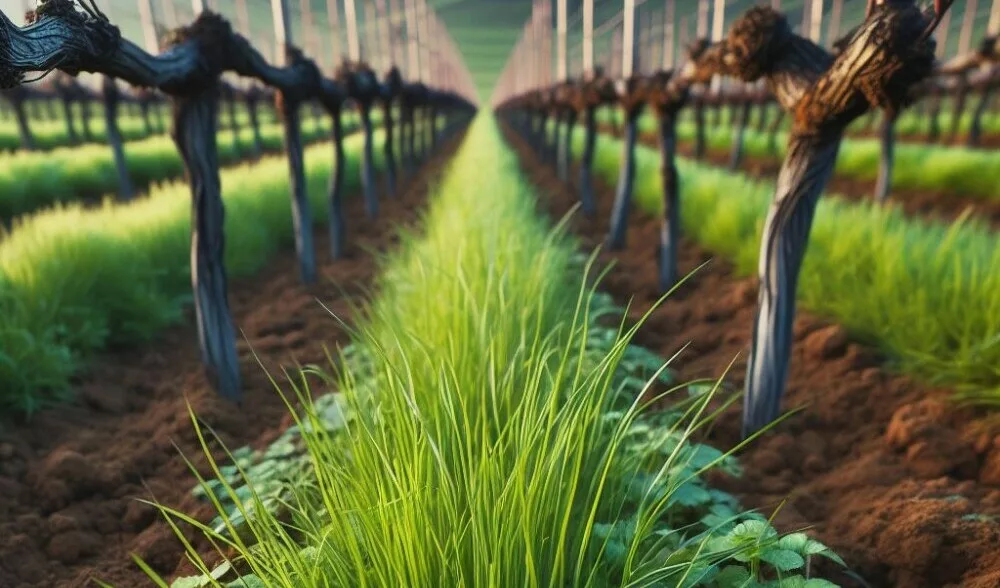
Sustainable And Organic Blaufränkisch Producers In Burgenland
Throughout history, farmers have used whatever technology was available to them to get the most out of their land.
For centuries, progress was slow, with only gradual discoveries in irrigation, fertilization, and crop rotation.
But the invention of chemical fertilizers and pesticides in the 19th and 20th centuries, respectively, revolutionized agriculture. These chemicals, along with mechanized farming equipment, allowed farmers to dramatically increase production.
However, this new agricultural system had its drawbacks. Poor soil health, water pollution, and other problems arose from the overuse of chemicals. In the early 20th century, people began to explore alternative farming methods.
Today, with a growing awareness of the fragility of the planet’s ecosystem, sustainable winemaking practices are more important than ever.
Sustainable winemaking is based on the idea of a relationship between farmers and the land. It is a give-and-take arrangement in which both the farmer and the environment thrive.
While some wineries use sustainable practices merely as a marketing gimmick, others believe in the core principles of sustainable winemaking. And these are the ones we’ll be talking about in this post.
Austrians have a deep love for nature and are therefore particularly respectful of the environment.
Austria is a country that values environmental protection and the responsible use of natural resources.
As a result, Austria is a world leader in sustainable viticulture.
Burgenland, Austria is a hotbed for sustainable winemaking! Fueled by eco-conscious consumers and a desire for quality grapes, the region is embracing practices like cover cropping. Sustainable Austria certification ensures eco-friendly winemaking across the board, while organic and biodynamic farming promote healthy vineyards. Look for sustainable options from Weingut Heinrich, Familie Reinisch, Heidi Schrök, Weingut Alois Kracher, or the community-focused Weingut Franz Weninger. Despite challenges, Burgenland’s innovative winemakers are securing a sustainable future for their vineyards, one delicious sip at a time!
- The Rise of Sustainable and Organic Winemaking in Burgenland
- Sustainable Viticulture Practices
- Organic Certification and Standards
- Biodynamic Approaches in Blaufränkisch Production
- Sustainable Blaufränkisch Wineries
- Environmental Impact and Community Involvement
- Challenges and Innovations
- Conclusion: Sustainable and organic Blaufränkisch producers in Burgenland
The Rise of Sustainable and Organic Winemaking in Burgenland
Nestled in the easternmost corner of Austria, Burgenland is a region renowned for its Blaufränkisch wines.
In recent years, there has been a growing interest in sustainable and organic winemaking in Burgenland, as producers strive to produce wines that are not only delicious, but also environmentally friendly.
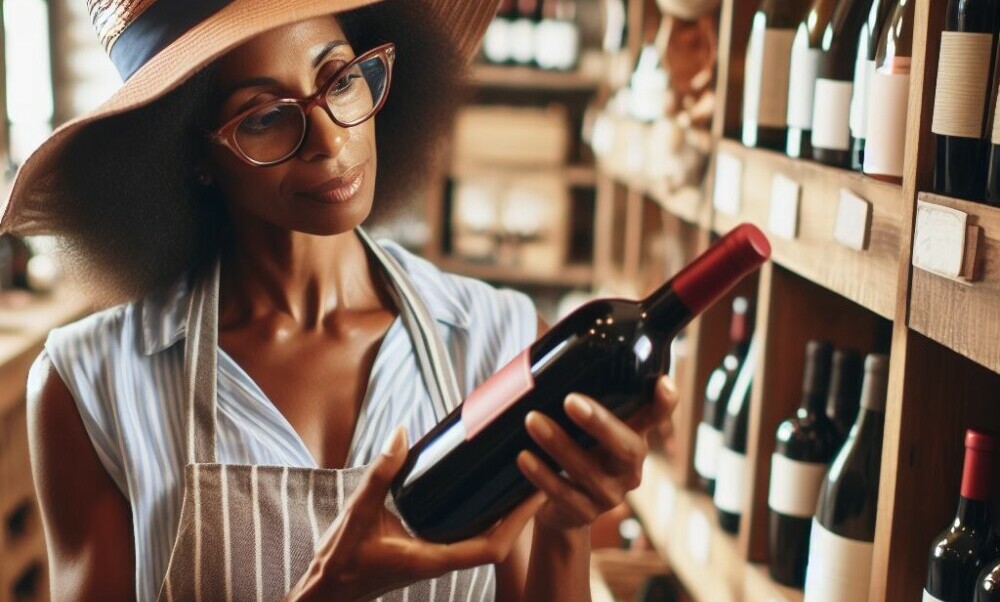
First, there is a growing awareness among consumers of the importance of sustainability. Consumers are increasingly looking for wines that are produced in a way that respects the environment.
Second, sustainable and organic winemaking practices can actually improve the quality of wine. For example, cover cropping helps to improve soil health, which can lead to more flavorful grapes.
Additionally, organic grapes are less likely to be contaminated with pesticides and other chemicals, which can also lead to better tasting wines.
The goal of sustainable winemaking is to minimize the environmental impact of wine production.
Organic winemaking is a subset of sustainable winemaking that adheres to a specific set of standards.
Organic winemakers are prohibited from using synthetic pesticides, herbicides, and fertilizers. They must also use natural methods to control pests and diseases.
Today, Austria even has a program : Sustainable Austria certified viticulture. This program recognizes Austrian wineries that are committed to sustainable viticulture. The program is based on a set of strict standards that cover all aspects of wine production, from grape growing to winemaking to packaging.
To be certified as Sustainable Austria, wineries must meet a number of requirements, including:
- Using sustainable farming practices, such as cover cropping, composting, and integrated pest management.
- Conserving water and energy.
- Promoting biodiversity in the vineyard.
- Minimizing waste and pollution.
- Using sustainable packaging materials.
Sustainable Austria certified wineries are audited annually to ensure that they are meeting the program’s standards. The program is supported by the Austrian Wine Marketing Board and the Austrian Ministry of Agriculture, Forestry, Environment, and Water Management.
There are a number of benefits to becoming a Sustainable Austria certified winery. These benefits include:
- Increased recognition and consumer trust.
- Access to a variety of marketing and promotional resources.
- Eligibility to participate in government programs that support sustainable viticulture.
- A competitive advantage in the global wine market.
Sustainable Viticulture Practices
So, like said earlier, integrated or sustainable viticulture aims to minimize the environmental impact of wine production while also producing high-quality wines.
It is based on the principle of using natural methods whenever possible to control pests and diseases, promote plant growth, and maintain soil health.
Integrated viticulturists use a variety of techniques to achieve these goals, including:
- Cover cropping: Cover crops are plants that are grown between the rows of vines. They help to improve soil health by adding organic matter, suppressing weeds, and reducing erosion.
- Composting: Composting involves breaking down organic matter, such as grape skins, stems, and leaves, into nutrient-rich soil amendments. Composting helps to improve soil fertility and reduce the need for chemical fertilizers.
- Biological control: Biological control involves using natural predators and parasites to control pests. For example, ladybugs can be used to control aphids.
- Reduced pesticide use: Integrated viticulturists use pesticides only as a last resort, and they use the least toxic pesticides possible.
Organic Certification and Standards
Organic farming started in the early 1940s as a reaction to the widespread use of synthetic pesticides.
It is the most widely recognized form of sustainable vineyard practice and is the only one regulated by governments.
Demand for organic products has skyrocketed in the past 20 years as consumers have become more health-conscious and aware of their impact on the planet.
The Millésime Bio fair, which has featured organic wines since 1993, is a testament to this growing popularity.
While the health benefits of organic wine are still being debated, there are clear benefits to the land and environment, such as cleaner water, healthier soils, and increased biodiversity.
Organic farmers don’t use synthetic fertilizers or pesticides, instead opting for natural alternatives like compost, manure, and natural predators to control weeds and pests.
There are a number of different organic certification bodies in Austria, each with its own specific standards. However, all certified organic wineries must comply with the basic principles of organic farming, such as:
- Rotating crops: Crop rotation helps to improve soil health and reduce pest pressure.
- Using natural inputs: Natural inputs such as compost and manure are used to improve soil fertility and structure.
- Promoting biodiversity: Biodiverse vineyards are more resilient to pests and diseases.
Being certified organic is a significant achievement, as it demonstrates a winery’s commitment to sustainable agriculture.
Biodynamic Approaches in Blaufränkisch Production

Biodynamic farming was first proposed by Rudolf Steiner in 1924, over 25 years before the organic movement began. Steiner saw the entire farm as a living organism, and his detailed instructions for everything from fertilization and pest control to soil and compost preparations reflect a holistic approach to agriculture.
Biodynamic farming includes all the principles and practices of organic farming, but it takes things a step further by taking into account lunar cycles and incorporating near-metaphysical elements into soil management.
The specific, esoteric preparations described in Steiner’s work may seem absurd to some people, but their true value lies in forging a deep, personal connection between the farmer and the land.
By respecting the vineyard as a whole, living organism, the farmer develops a much more intimate bond with their crop, and this is reflected in the finished product.
Some of the key principles of biodynamics include:
- Using biodynamic preparations: Biodynamic preparations are made from natural substances and are used to improve soil health and promote plant growth.
- Respecting cosmic rhythms: Biodynamic farmers plant and harvest their crops in accordance with lunar and planetary cycles.
- Creating a self-sustaining farm ecosystem: Biodynamic farms are designed to be self-sustaining, with a diverse range of crops and animals working together to create a balanced system.
Demeter, the worldwide authority on biodynamics, certifies all manner of agricultural operations around the globe.
In Austria, Respekt Biodyn leads the conversation and handles certification for biodynamic winemaking.
Despite often being dismissed by the scientific community as new-age charlatanism, biodynamic viticulture is nevertheless gaining a healthy following among Austrian vintners.
One recent convert is Fritz Wieninger, who took over the Hajszan Neumann winery in Vienna in 2006.
While not all sustainable and organic Blaufränkisch producers in Burgenland follow biodynamic principles, a growing number of wineries are embracing this approach.
Sustainable Blaufränkisch Wineries
Austria is a leader in sustainable agriculture, with nearly 10% of its vineyards certified organic.
One of the biggest advocates for organic viticulture in Austria is Familie Reinisch. The Reinisch brothers have a long history of winemaking in Thermenregion, dating back to 1923. They now organically farm over 40 hectares of vines in Gumpoldskirchen and Tattendorf.
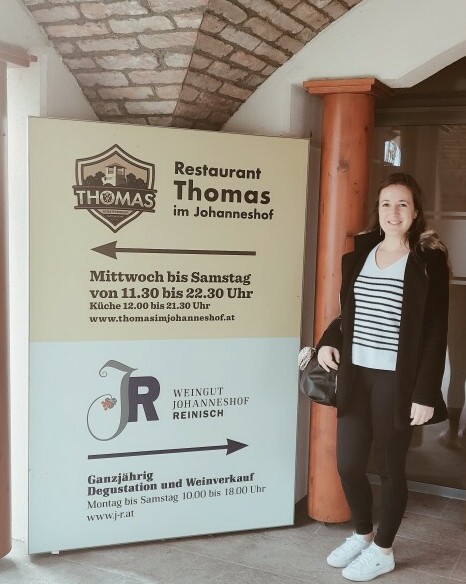
The two Reinisch brothers didn’t convert to organic farming for marketing reasons. They saw the benefits to both their vines and the overall health of the vineyard.
While there are challenges to organic farming, such as more work, lower yields, and higher operating costs, the Reinisch family is committed to the long-term benefits.
Weingut Heinrich‘s philosophy also centers around sustainability and the belief that great wines are born from a healthy and balanced ecosystem.
The estate’s vineyards are cultivated without the use of synthetic chemicals, and the grapes are hand-harvested at optimal ripeness to ensure the highest quality fruit.
Heidi Schrök is a sustainable and organic winemaker in Burgenland. She is known for her high-quality Blaufränkisch wines, which are produced from grapes grown in biodynamic vineyards.
Schrök is a passionate advocate for sustainable viticulture. She believes that biodynamic farming is the best way to produce healthy grapes and high-quality wines.
I believe that biodynamic farming is the best way to produce healthy grapes and high-quality wines. It is a holistic approach that takes into account the entire ecosystem of the vineyard. By using biodynamic practices, we can create wines that are not only delicious, but also sustainable.

Weingut Alois Kracher is a family-owned winery that has been producing sustainable and organic Blaufränkisch wines for over 30 years.
The winery is committed to farming in harmony with nature and producing wines that are expressive of the unique terroir of Burgenland.
Weingut Alois Kracher uses cover crops, composting, and IPM to produce sustainable and organic Blaufränkisch wines.
Any discussion of biodynamic Austrian wine must include Franz Reinhard Weninger.
Weninger has always had a deep respect for the soil, and his farming practices have always been aimed at improving soil health and maintaining the overall balance of his land.
Weninger was practicing the holistic approach that biodynamics proposes for years before he became officially certified in 2006.
While there are no government regulations for biodynamic farming, the practice is strictly codified by private organizations that adhere to Steiner’s principles.
Wieninger was originally skeptical of biodynamic practices, but he was convinced after a few short years spent working with Stefan Hajszan, a staunch proponent of biodynamics.
The overall health and biodiversity of the vineyards, and the sublime quality of the resulting wines, were enough to make a believer out of him.
Environmental Impact and Community Involvement
Sustainable and organic winemaking in Burgenland goes beyond the vineyard, considering the overall environmental impact of the winery’s operations.
Many producers are implementing initiatives to reduce their carbon footprint, conserve water, protect biodiversity and are also actively involved in their local communities.
Some wineries support local businesses and organizations, while others sponsor cultural events and educational programs.
Weingut Franz Weninger supports a number of local charities and organizations, including a local school and a nature conservation organization.
For example, Weingut Franz Weninger supports the local school in Heiligenbrunn by providing financial assistance and donating wine for school events.
In 2021, Weingut Franz Weninger donated €10,000 to the local school in Heiligenbrunn to help with the construction of a new playground.
It also supports the nature conservation organization WWF Austria by donating a portion of the proceeds from the sale of their “Weninger für WWF” wine.
The winery also donated €5,000 to the nature conservation organization WWF Austria to support their work in protecting the environment.
Last, Weingut Franz Weninger also supports other local charities and organizations, such as the Red Cross and the Caritas.
The commitment of sustainable and organic winemakers in Burgenland to environmental stewardship and community involvement is evident in the many ways that they are working to create a more sustainable and vibrant future for the region.
Challenges and Innovations
While sustainable and organic winemaking in Burgenland has made significant progress in recent years, there are still some challenges that producers face.
One challenge is the higher cost of organic farming. Organic producers must invest in more labor-intensive farming practices and organic inputs, which can be more expensive than conventional farming methods.
Another challenge is the unpredictable weather conditions in Burgenland. The region is prone to extreme weather events, such as hailstorms and droughts, which can damage vineyards and reduce crop yields.
Despite these challenges, sustainable and organic winemakers in Burgenland are constantly innovating and finding new ways to produce high-quality wines while respecting the environment.
For example, some wineries are experimenting with new grape varieties that are more resistant to pests and diseases. Others are developing new methods of pest control and nutrient management.
The commitment to innovation and continuous improvement is a hallmark of the sustainable and organic winemaking community in Burgenland.
By addressing the challenges they face and developing new solutions, these producers are helping to ensure the long-term health of the region’s vineyards and wineries.
Conclusion: Sustainable and organic Blaufränkisch producers in Burgenland
So, all in all, let me summarise all this for you.
Burgenland, Austria, known for its Blaufränkisch wines, has seen a surge in sustainable and organic winemaking.
This shift is driven by the fact that the consumers are becoming more and more aware of environmental impact and a have desire for eco-friendly wines. By the way, practices like cover cropping and organic farming not only benefit the environment but also enhance grape quality.
Second thing you should take with you: Austria has a certification program, Sustainable Austria, acknowledging wineries committed to eco-friendly practices.
It covers aspects from grape growing to packaging, emphasizing sustainable farming, water conservation, biodiversity promotion, waste reduction, and sustainable packaging.
Organic farming, dating back to the 1940s, avoids synthetic pesticides and fertilizers, promoting crop rotation and biodiversity.
Biodynamic farming, an advanced form of organic viticulture, incorporates cosmic rhythms and esoteric preparations. Despite skepticism, it’s gaining traction among Austrian winemakers. Certified by Demeter, it fosters a deep connection between the farmer and the land.
If you’re looking for some examples of wineries, here are some names you should keep in mind (although nowadays, 90% of the wineries in Austria practice sustainable viticulture) :Weingut Heinrich, Familie Reinisch, Heidi Schrök and Weingut Alois Kracher.
Weingut Franz Weninger stands out not only for sustainable practices but also for community involvement by supporting local charities, schools, and nature conservation organizations,
While sustainable winemaking faces challenges such as higher costs and unpredictable weather, Burgenland winemakers are resilient. They innovate with new grape varieties and pest control methods, ensuring the region’s vineyards thrive in the long run.
So, why not support these winemakers and this movement by paying attention to what you drink?
If you’re unsure of where to find organic or biodynamics wines, Organic Wine Exchange have you covered! They have even have an organic wine club where you’ll get wine delivered directly to your doorstep every month or you can sign up to the biodynamic wine club and it’ll be only biodynamic wines!







